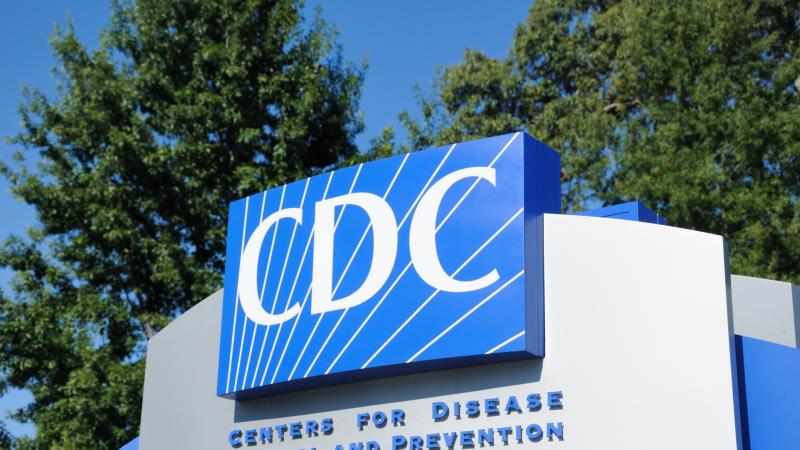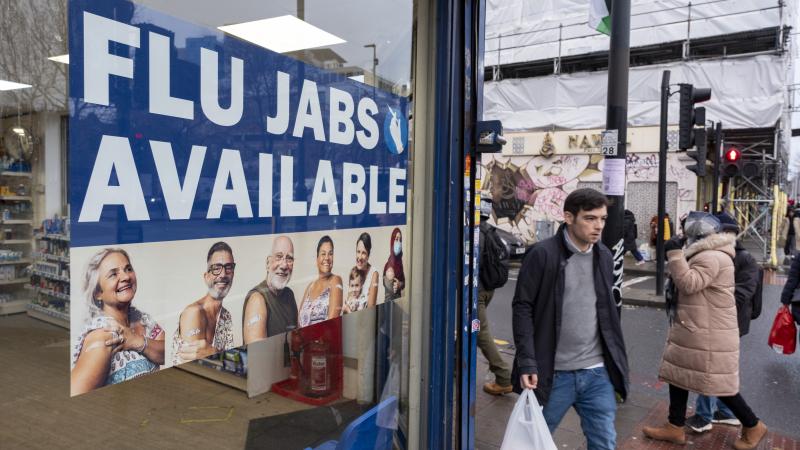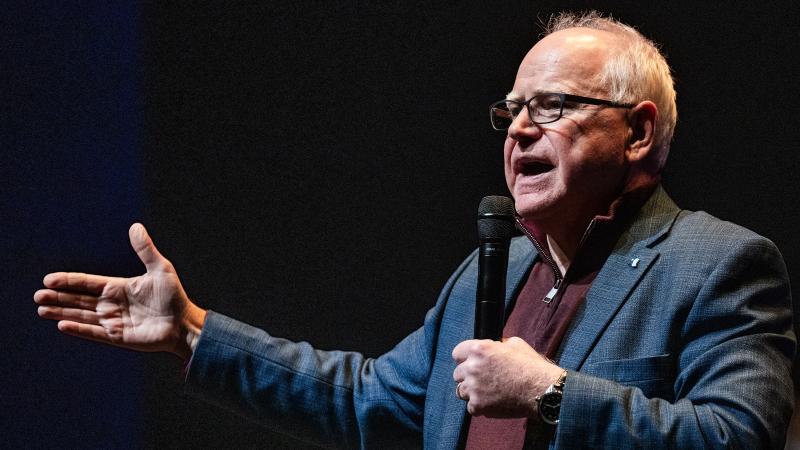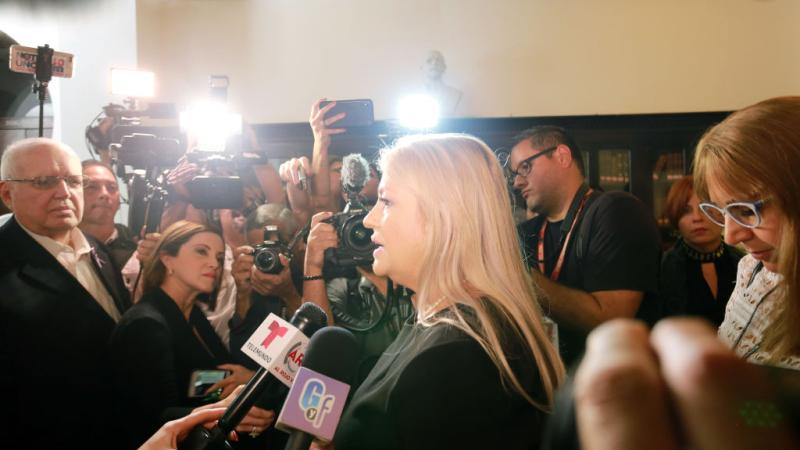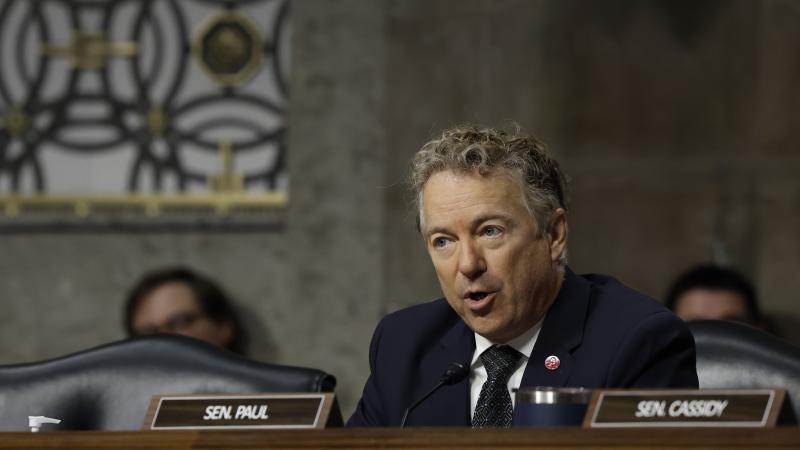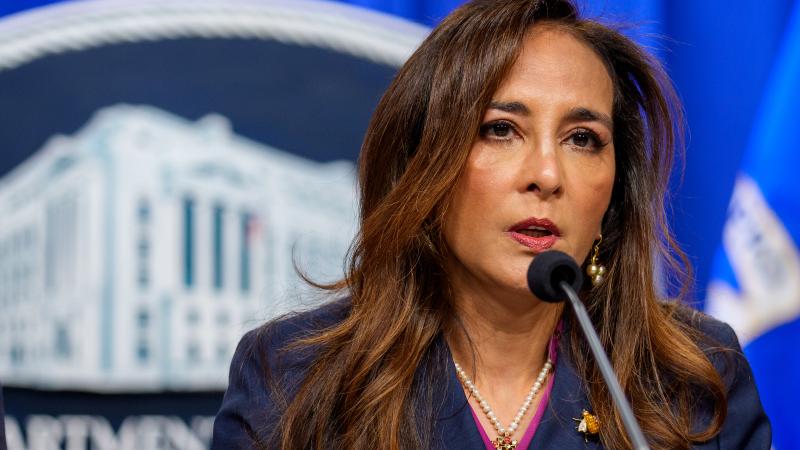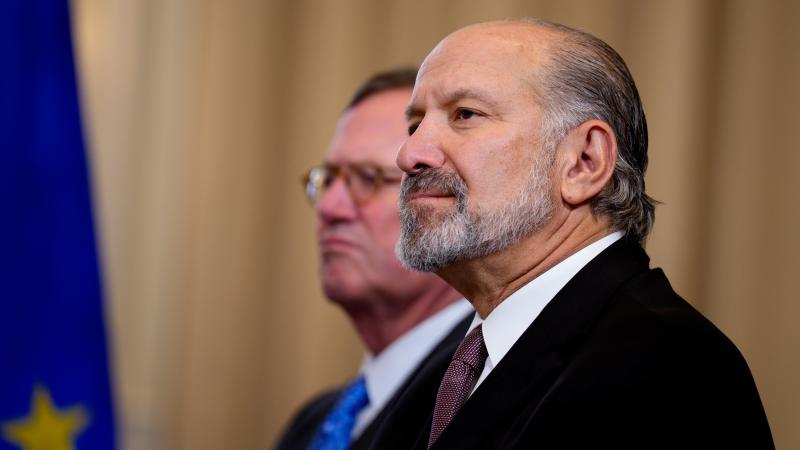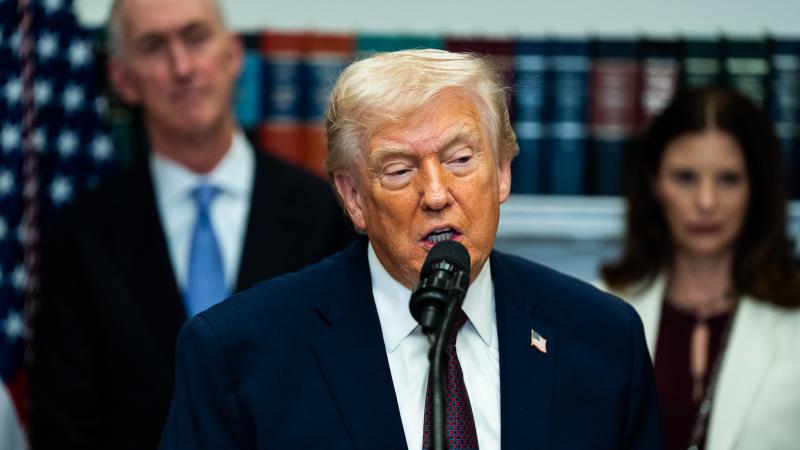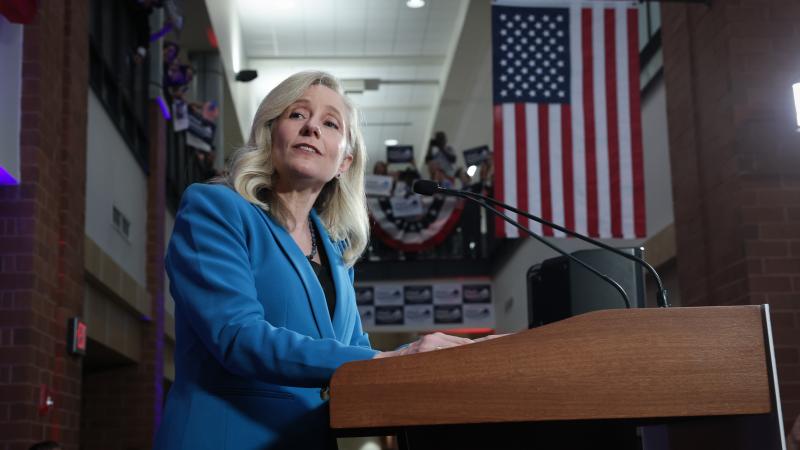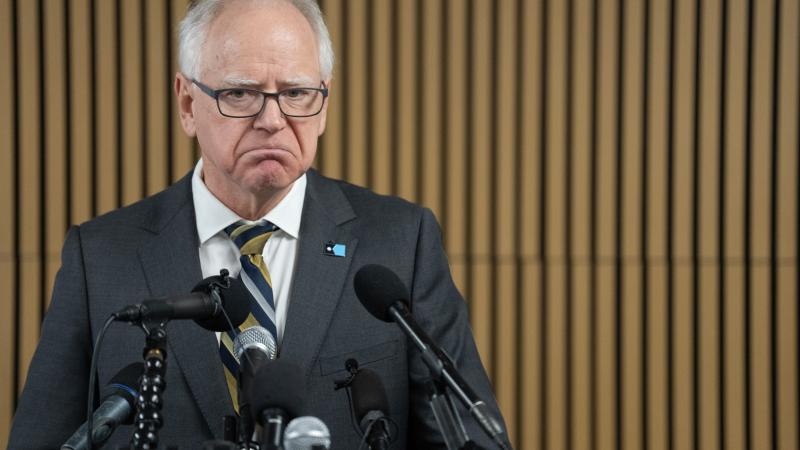Key senator says U.S. vaccine safety system failing, urges reforms to testing and liability
“When you pay for science, you get the result you want,” Ron Johnson said. “From my standpoint, job No. 1 is we have to restore integrity to science (even) if it's going to be public funding."
Sen. Ron Johnson, R-Wis., who next month will begin overseeing the Senate’s most powerful investigative body, says the government’s vaccine safety system is no longer protecting Americans adequately because of conflicts of interest and lack of transparency, and he is vowing to work with the incoming Trump administration to press for sweeping reforms.
Those reforms could range from changing the vaccine liability protections of drug makers to taxpayer funding and other changes to insure the independence of safety testing, he told Just the News.
“The best solution for this is actually make these products safer, and do real science to determine whether there are certain conditions that make you more vulnerable,” Johnson said in a wide-ranging interview on the Just the News, No Noise television show.
Asked whether the current safety system led by the Food and Drug Administration and Centers for Disease Control and Prevention was adequately protecting Americans, Johnson answered: “I would say absolutely not.”
"Agency capture"
Johnson pointed to a Harvard study that came out before the COVID-19 pandemic that projected only one percent of side effects from vaccines were properly reported to the Vaccine Adverse Events Reports System (VAERS) database.
“We have, and this isn't just unique to our federal health agencies. I think this really applies across the board to government, the capture of these federal agencies by the corporate interests that these agencies are basically established to regulate,” he said Friday on the Just the News, No Noise television show.
“Listen, I don't necessarily blame the businesses. I mean, they react as anybody would, trying to protect their business,” he added. “You have a government which is power, and as Lord Acton said, power corrupts. And so you have power, and you have these businesses that are saying, well, how can we survive over-taxation over-regulation? Well, they're pretty smart people, so they figure out … how to game the system.”
Johnson said one concern he hopes to address is the outsized influence big drugmakers have on the system, from funding their own safety studies and possessing the safety data to courting regulators with big job offers that move them through the revolving door.
Restoring integrity
“When you pay for science, you get the result you want,” he said. “From my standpoint, job No. 1 is we have to restore integrity to science (even) if it's going to be public funding. And we need independent boards with everybody at the table. I just don't want one side.”
Johnson said a recent effort by the government to protect Pfizer data on its COVID-19 vaccine from coming out illustrated the closeness of regulators and those they are supposed to regulate.
“I think if you want evidence of the corruption … it was the FDA that went to court to protect the trial data on the mRNA injection for 75 years now,” he said. “I'm sure Pfizer would have gone to court, didn't have to, because the federal agencies went to bat for them and tried to keep that information, which should have been made publicly available almost immediately, a secret for 75 years.”
Johnson said he also continues to support changing the absolute liability indemnifications that vaccine makers get from the government, an idea that former CDC Director Robert Redfield recently endorsed. Johnson said a middle ground with some protections and some liability is a likely outcome.
“I've been saying that for quite some time,” he said. “That original 1986 bill did not provide liability protection for the vaccine manufacturers. That was a wink and a nod agreement that they did it by regulation about a year later. So it really never, was not the intent of that bill to completely obliterate vaccine liability.
“Now I would say there has to be some limits to it. We do want drug companies to be able to research and produce through lifesaving drugs, but it has to be based on real science and has to be transparent, and they've got to fess up to when they're drugs or their vaccines cause harm," he added.
Forcing transparency on the COVID-19 vaccine remains a top priority, Johnson stressed.
“We've pretty well been given the middle finger”
Johnson wrote a letter to the Department of Health and Human Services (HHS), Food and Drug Administration (FDA), and Centers for Disease Control and Prevention (CDC) last month demanding immediate preservation of "all records referring or relating to the development, safety, and efficacy of the COVID-19 vaccines."
Johnson's office said "these agencies have refused to provide complete and unredacted documents" in response to the senator's previous oversight letters. “In addition to hiding relevant information from Congress, your agencies have applied heavy redactions to public documents released under Freedom of Information Act (FOIA) requests. These redactions have made many of these public documents hard to understand and, in countless instances, impossible to read,” the senator wrote in his letter.
"[W]hile your agencies have largely ignored or failed to fully cooperate with my oversight efforts, I can assure you that your obstruction will soon come to an end. In the next Congress, when I become chairman of the Permanent Subcommittee on Investigations, any attempt by your agencies to withhold documents will be met with a subpoena," he also wrote.
Johnson said he has not received any data from many responses he sent the agencies but expects that to change when he becomes chairman of the Senate Permanent Subcommittee on Investigations.
“We've pretty well been given the middle finger,” he said. “For the last four years, I have not had subpoena power, so I can't compel testimony, and the federal agencies know that, and so they just completely ignore Congress, which means they completely ignore the American people. That's a recurring theme.
“Hopefully, when I start issuing subpoenas that will gain their attention, and when President Trump gets inaugurated with the people he has selected for his administration, they will be able to extract that information,” he said.
